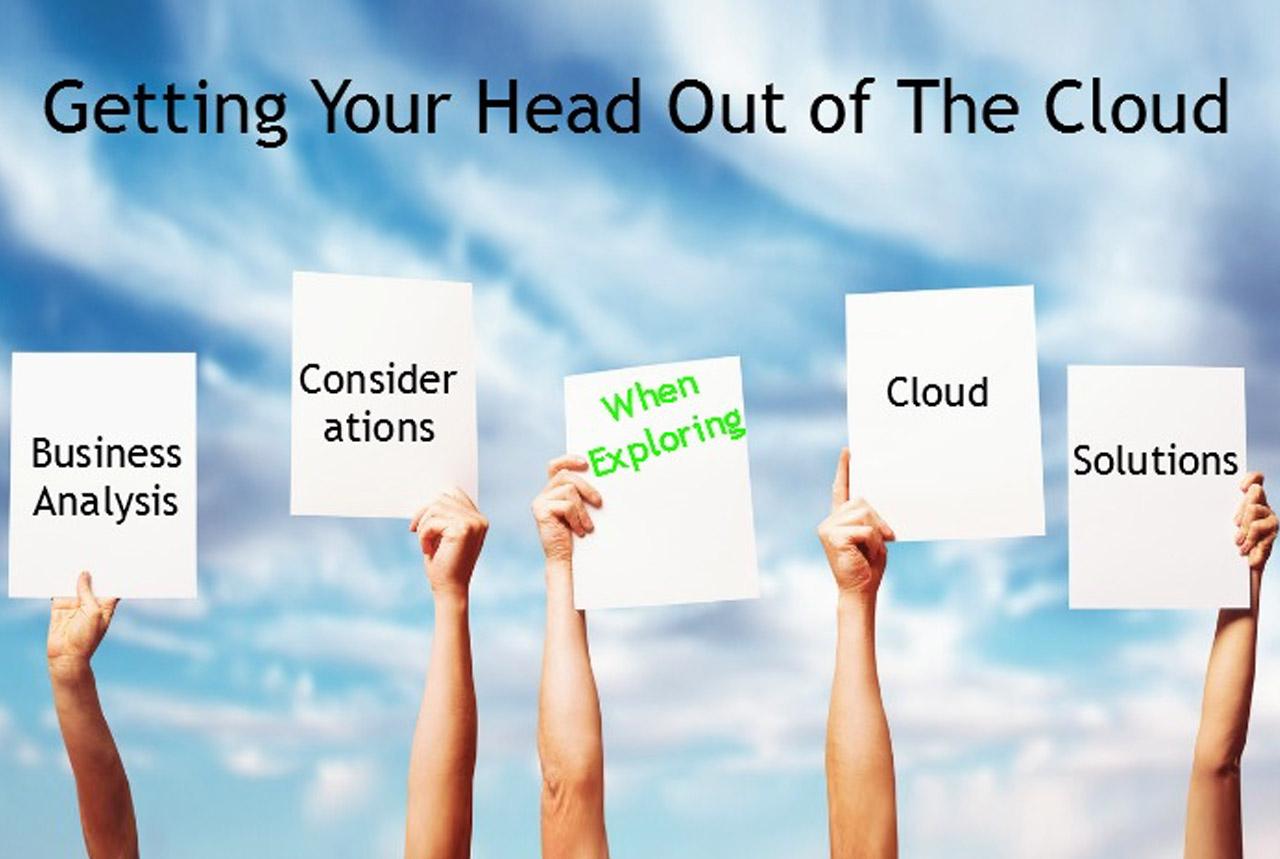Project management is more than just a beneficial skill; it’s a core competency that benefits…

Cloud Solutions – Things To Consider Before Going To The Cloud
Getting Your Head Out of the Cloud: Business Analysis Considerations when Exploring Cloud Solutions
When it comes to assessing the feasibility of cloud computing we want you to ‘get your head out of the clouds’ – at least long enough to analyze and determine whether or not cloud solutions are right for your business. Cloud technology has seemingly taken the IT industry by storm. It is also one of the most widely discussed trends in project management today, as well it should be. The promise of greater efficiency, lower costs, better customer experience and higher profits are too compelling to ignore. Although the benefits make cloud technology seem like the best (or only) choice, there are some serious considerations to keep in mind before implementing such solutions.
Buy-in – Understand what benefits you and your company are hoping to achieve with a cloud solution: better service levels, reduced IT costs, improved user experience, faster time to market? To what extent does migrating to a cloud solution have support from legal, human resources and regulatory entities?
On-site hosted vs. cloud solutions – If your stakeholders feel that certain content is not appropriate for a cloud server, it may be necessary to maintain an on-site (private) storage and data management solution for certain content while using a cloud solution for other types of data. This hybrid approach works well in many organizations. Depending on the option you choose, using cloud technology may mean your data and content will reside on an external vendor’s server. Before going to a cloud solution, confirm that the use of cloud technology for maintaining and storing your information is in alignment with your policies and philosophy. Furthermore, make sure that the vendor’s policies are consistent with those of your company.
Risk Assessment, Compliance, and Data Security – Data safety and security are considered risks associated with using external cloud computing. Even the most secure data can be compromised in some way. Will you or your vendor bear the greater liability if the vendor’s server is hacked or the data is accessed by unauthorized personnel? Be very clear about the answers to this question. Ensure that your service contract with the cloud service provider contains unambiguous language about the consequences of data breaches. In many instances an indemnification contract clause can help minimize your risk. It’s also important that you understand how your vendor will ensure that your data is safe and secure. What considerations need to be made for compliance regulations? For example, if your cloud solution will be accepting or processing credit card information, is your application compliant with Payment Card Industry – Data Security Standards (PCI DSS)? Finally, consider the impact that down time problems will have on your business and get service guarantees if appropriate. Ensure those service agreements align to (and meet) your business operating standards.
Are you ready? After selecting a cloud solution, identify and address weaknesses in your information management policies. Is your information architecture compliant with best practices in your industry? Will you need to launch a structured change process with staff to transition to cloud technology?
Exit Strategy – Vendors eager to sell you their products and services will often promote the scalability of their solutions, but rarely deliver on this promise. And then two or three years down the road when your business needs have changed and your current cloud solution is no longer appropriate, what will you do? Having an exit strategy in place, early, is just as important as your implementation strategy. An effective exit strategy may seem as simple as transferring your content from one platform to another-yet the reality is usually quite different. Be sure you understand the cost and complexity transitioning to a different cloud solution and have a plan in place.
As you contemplate the impact and business case for migrating to a cloud infrastructure, remember that in many instances cloud technology can offer significant benefits. In others, however, it may not make sense, at least not for the immediate short term.
What other analysis have you considered when exploring a cloud solution?
Chrystal Richardson is Managing Partner of CE Wilson Consulting, a project management and business efficiency consulting firm that has managed projects for technology, mining, medical and manufacturing clients since 2001.




